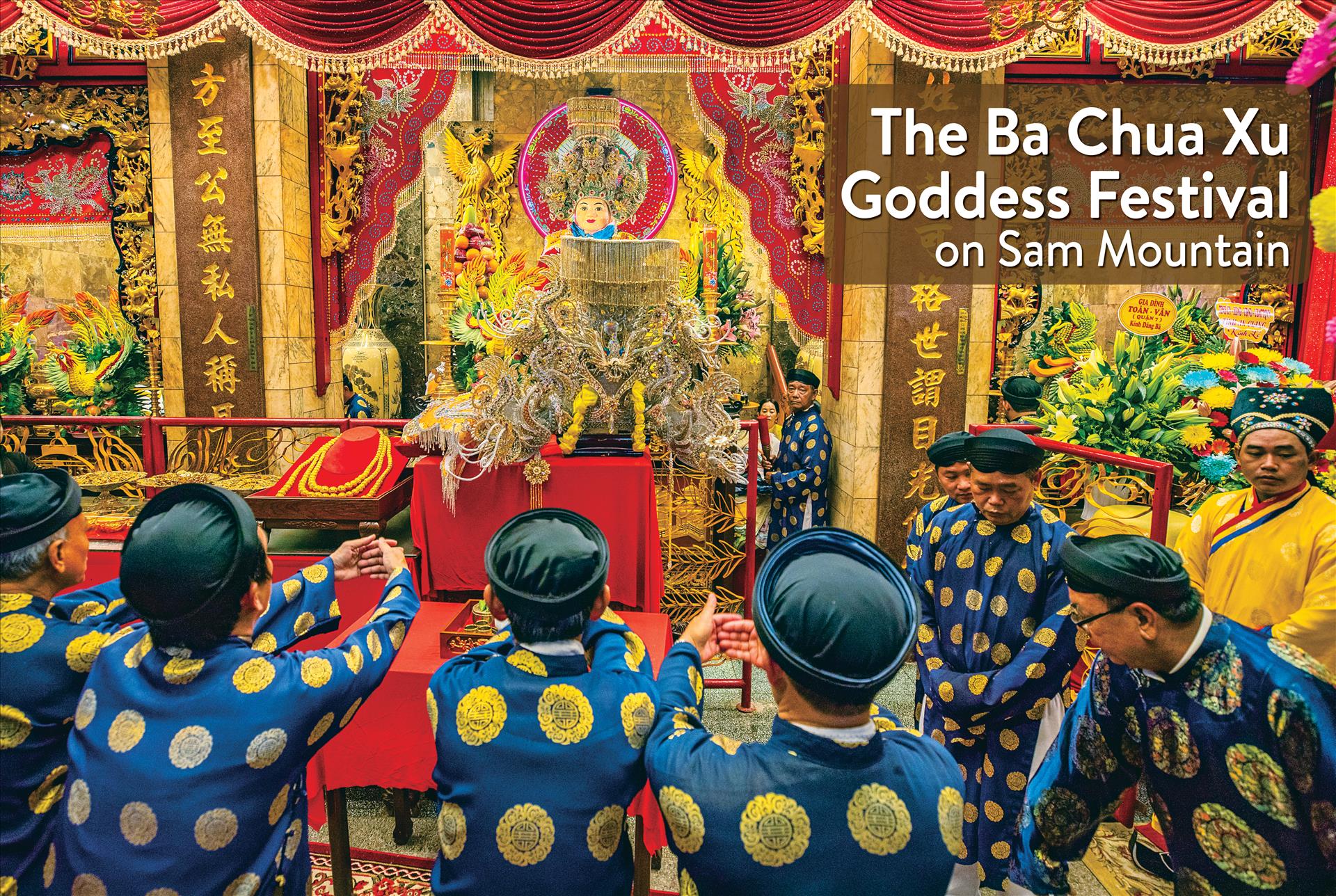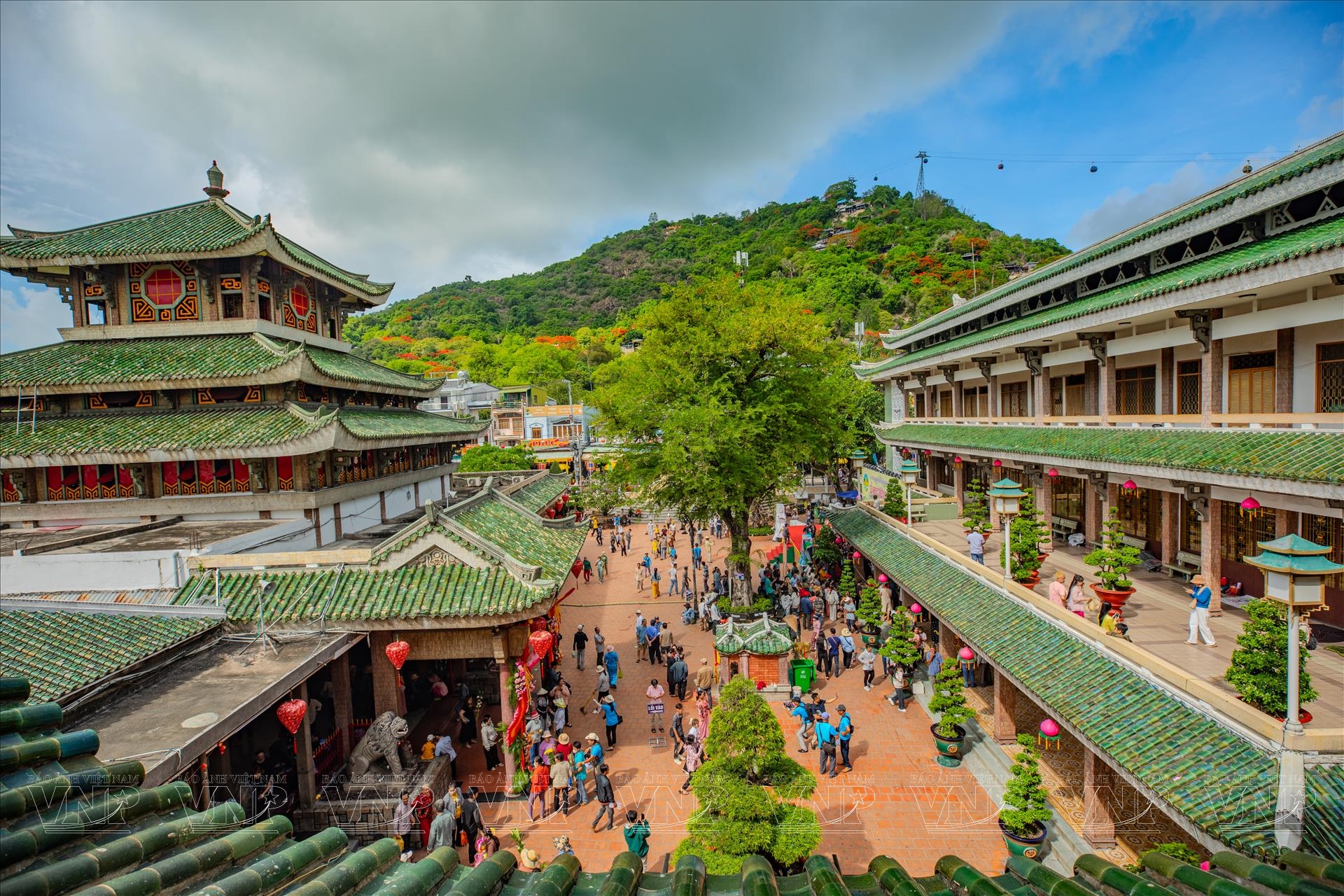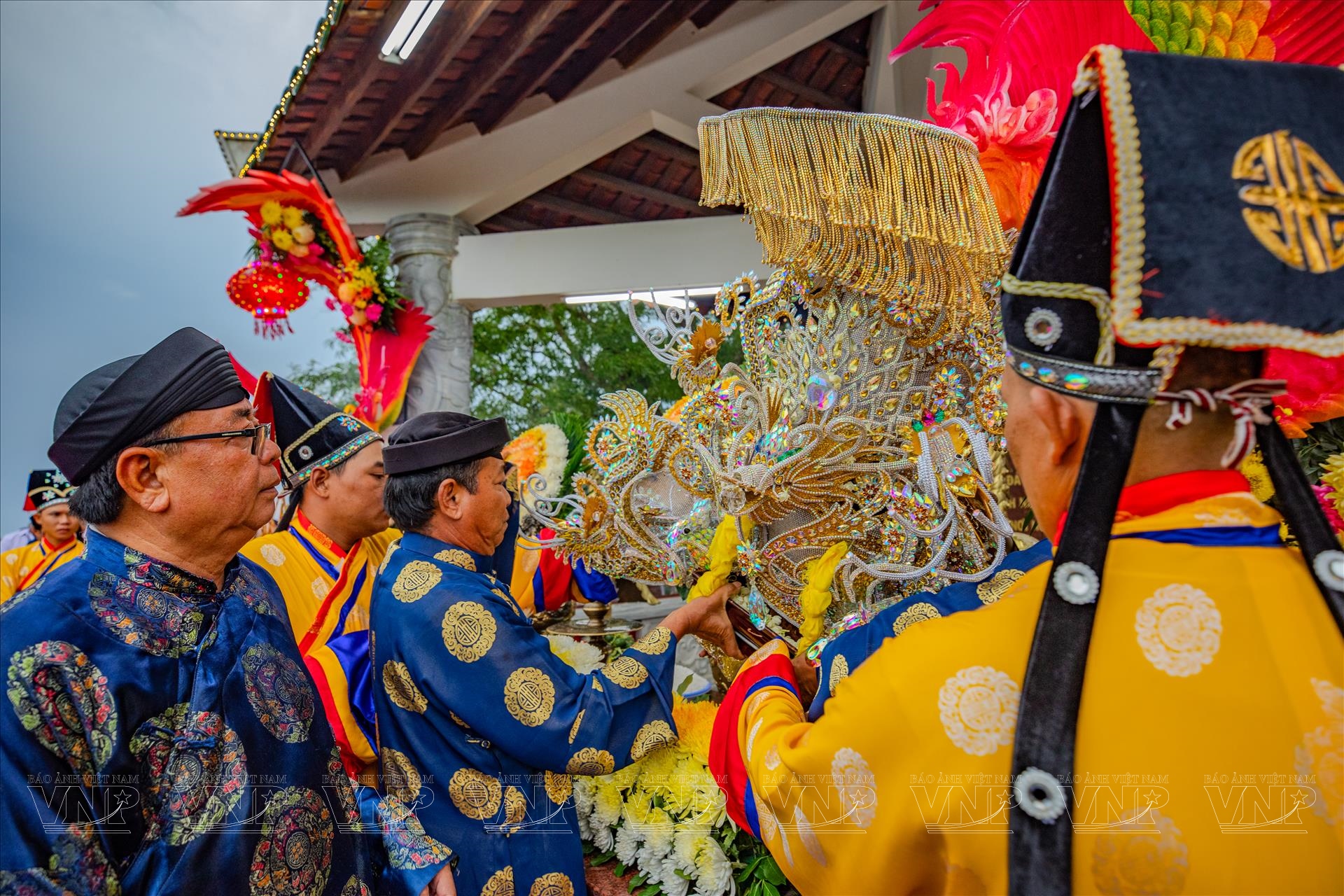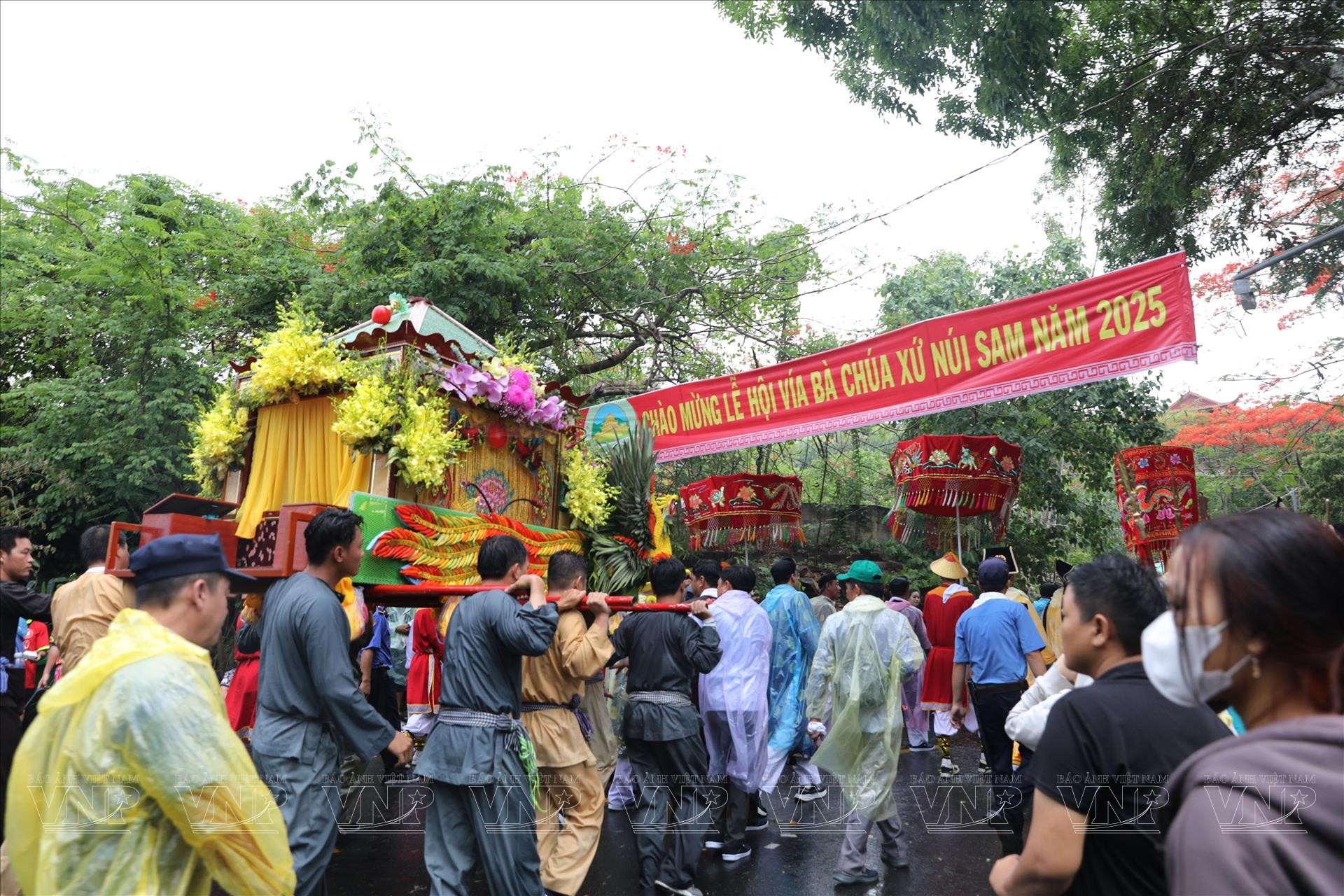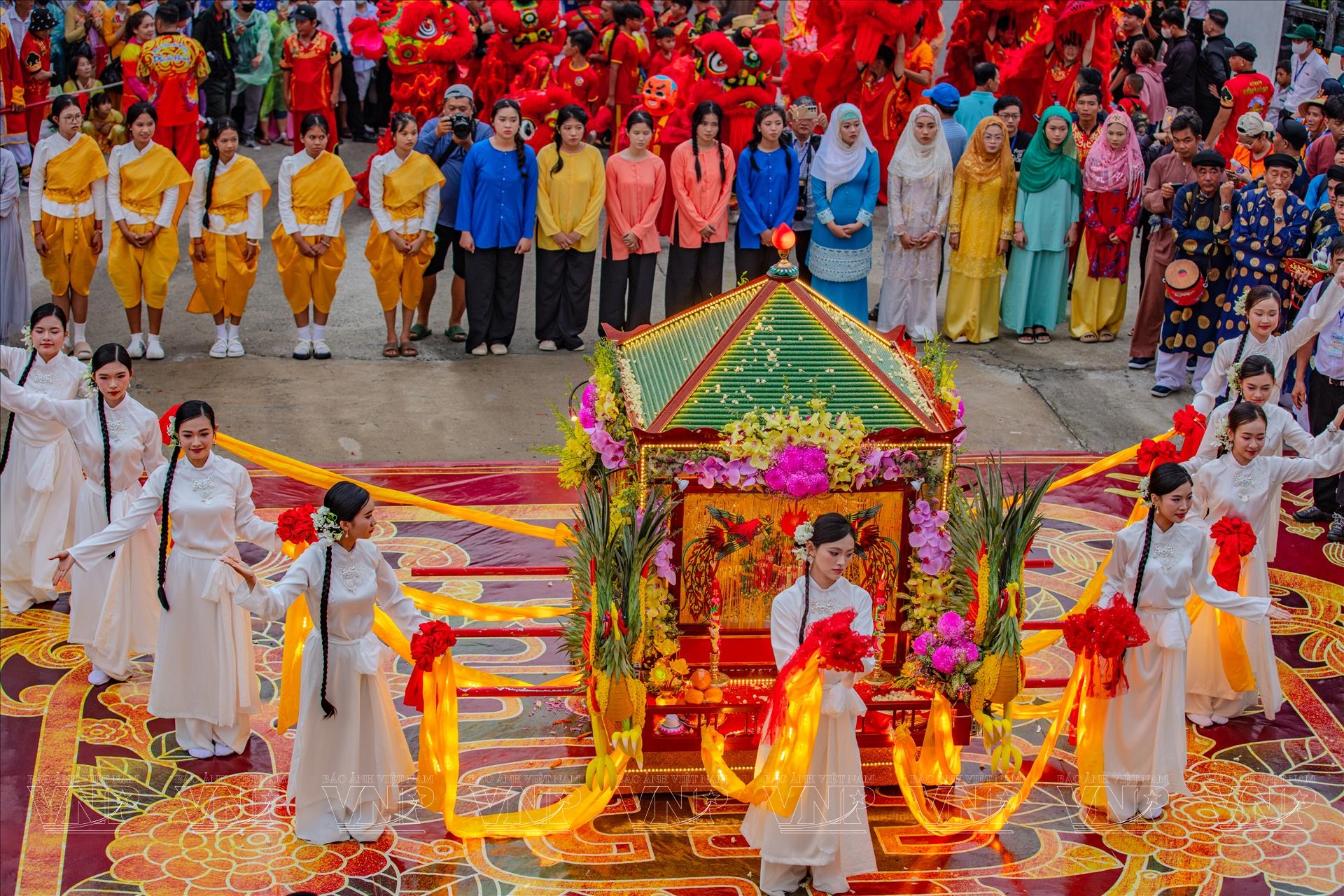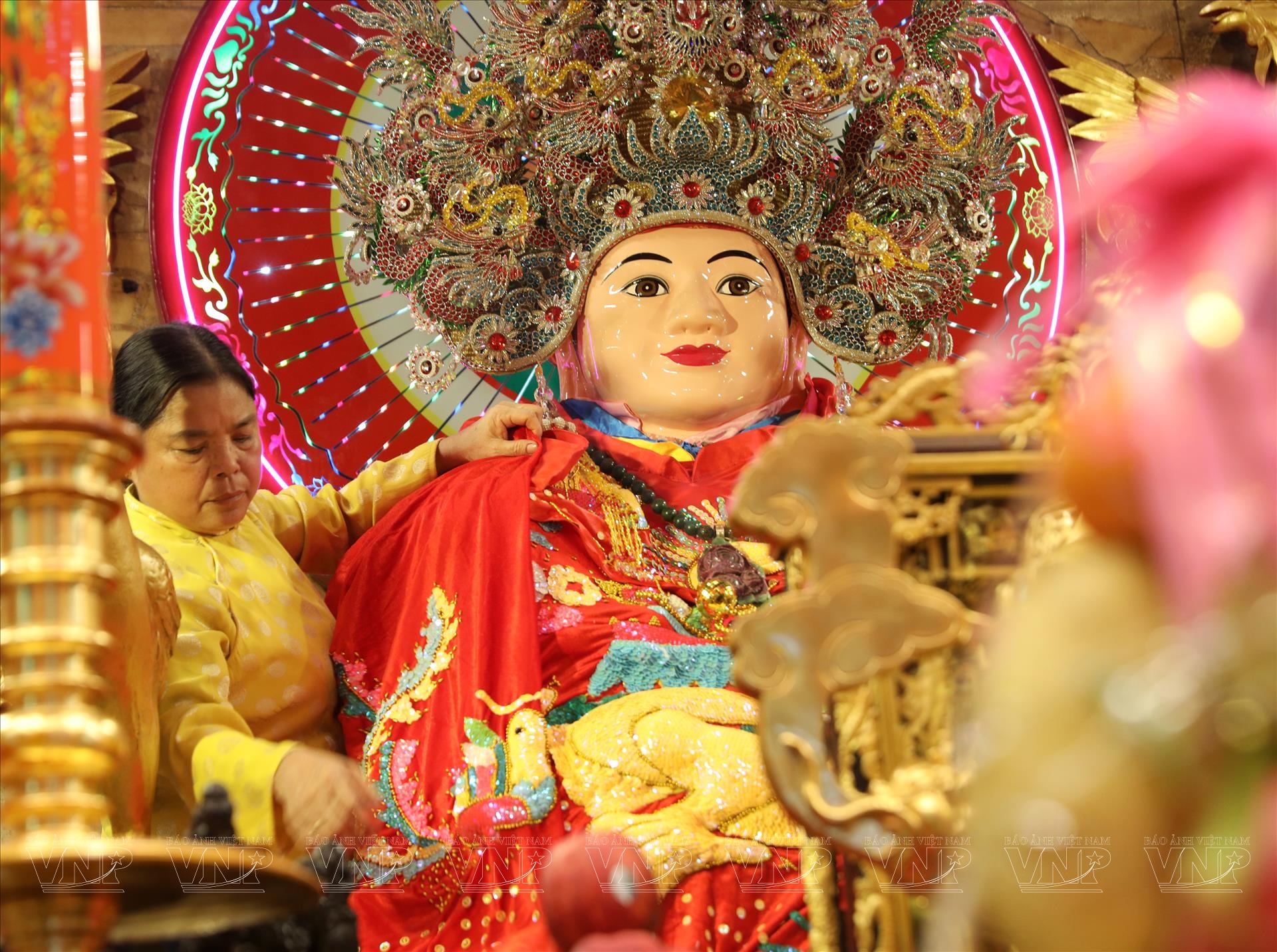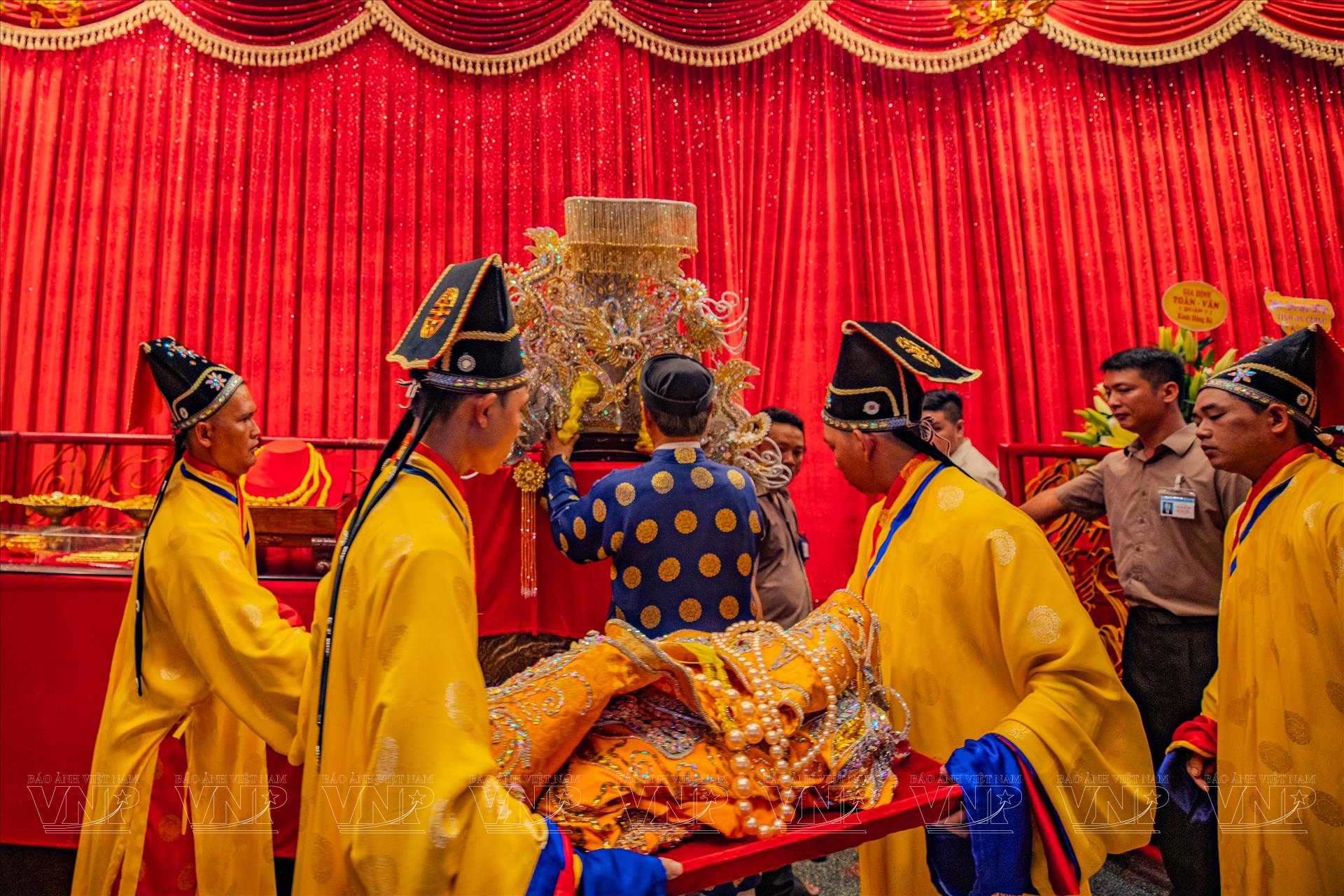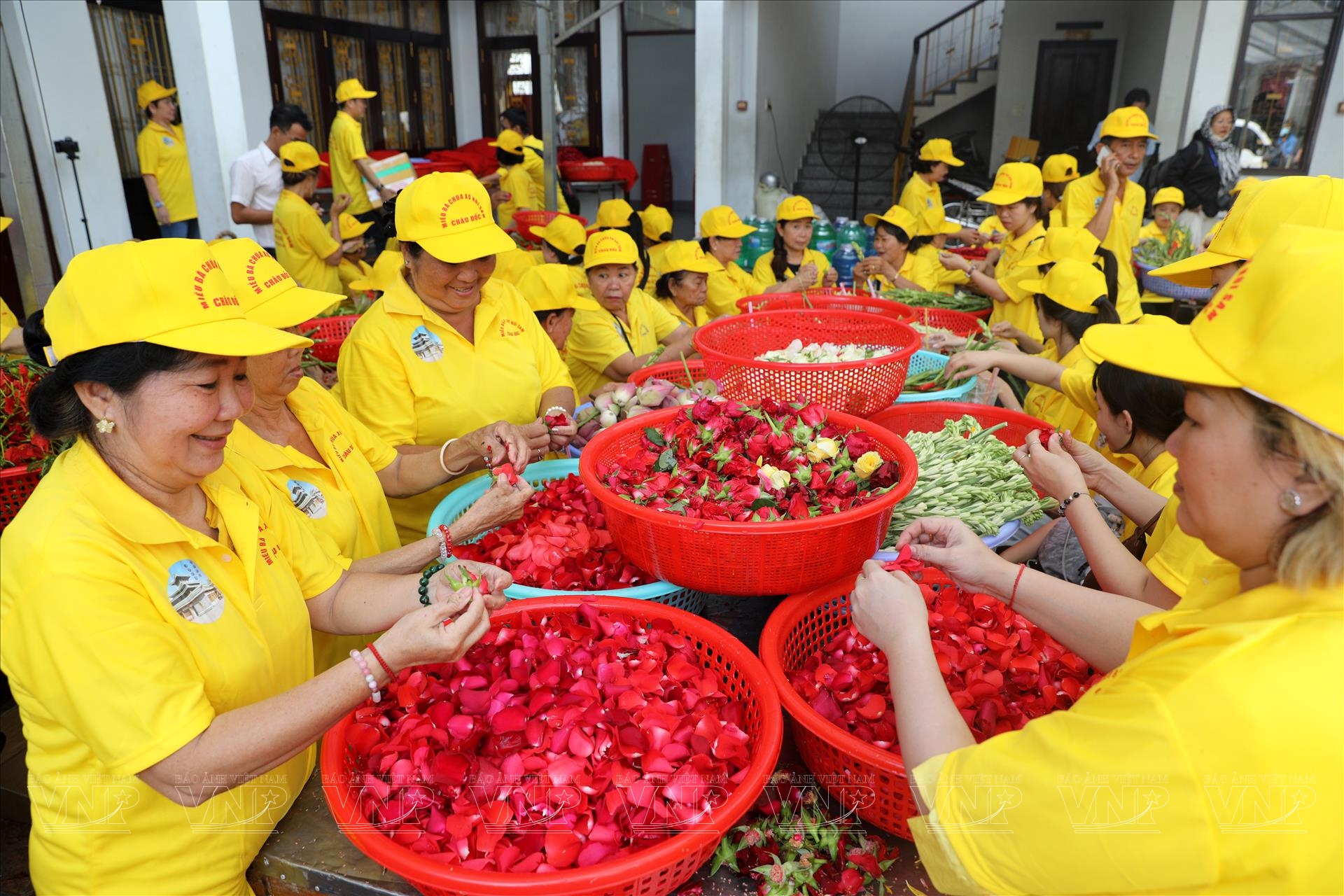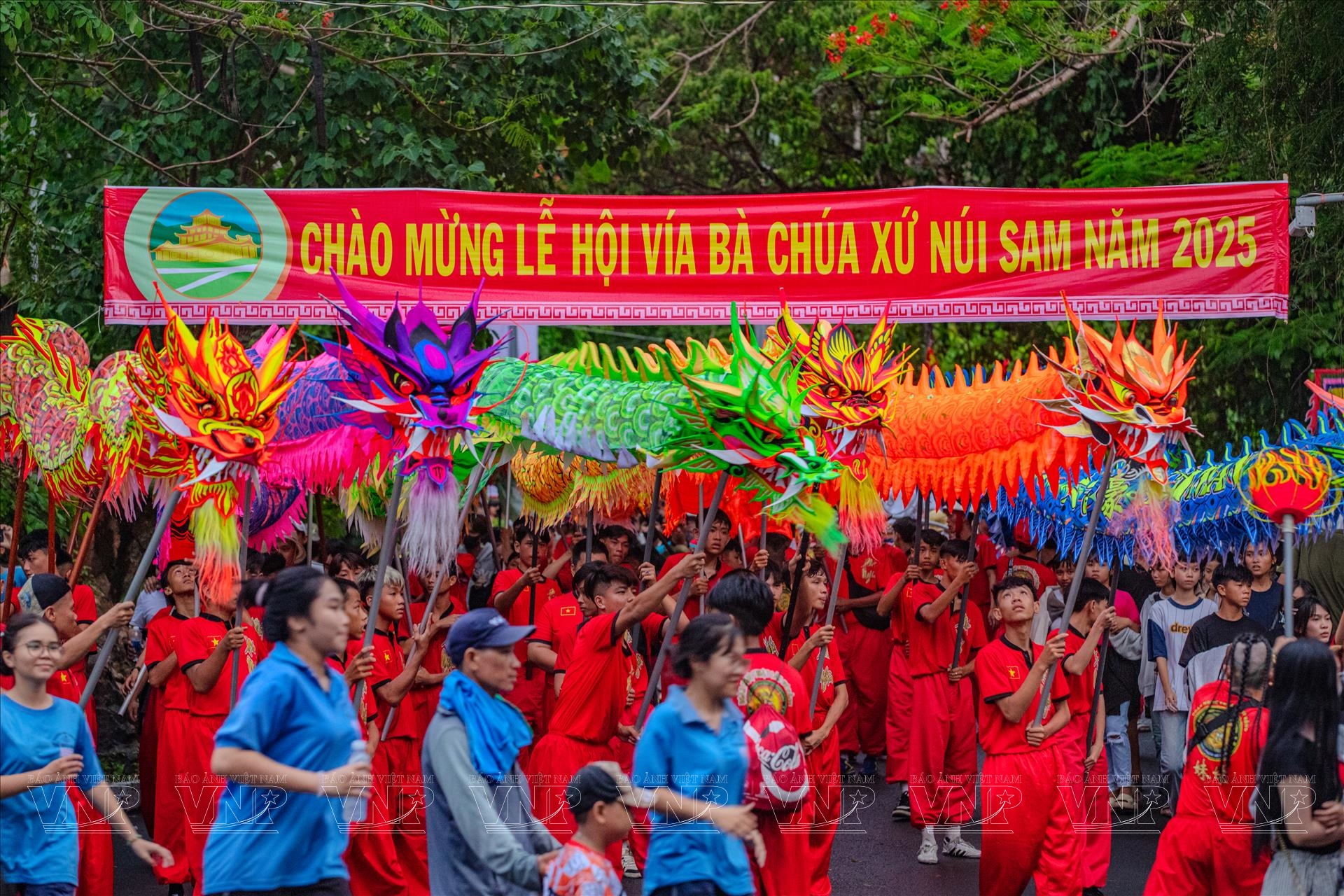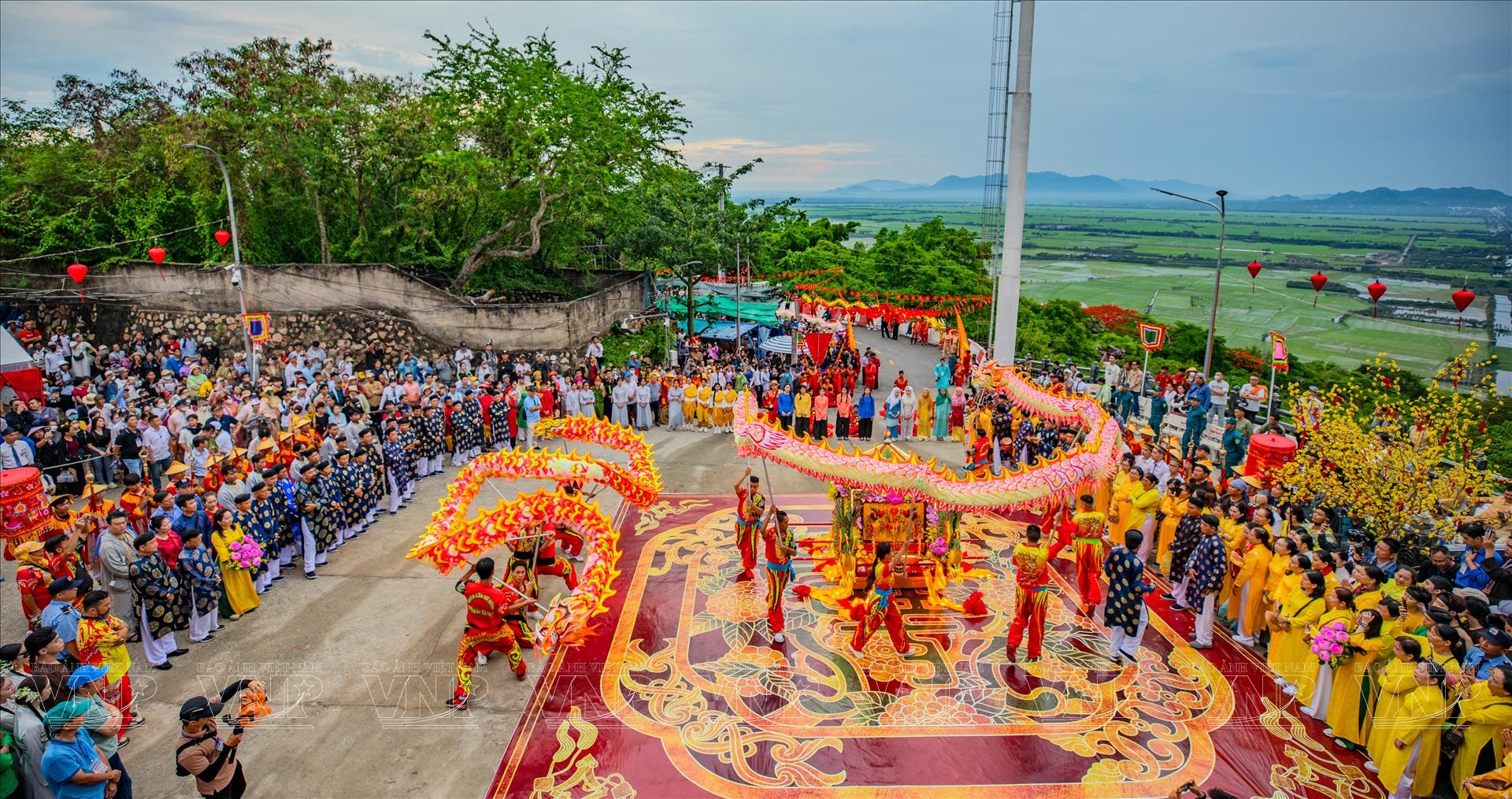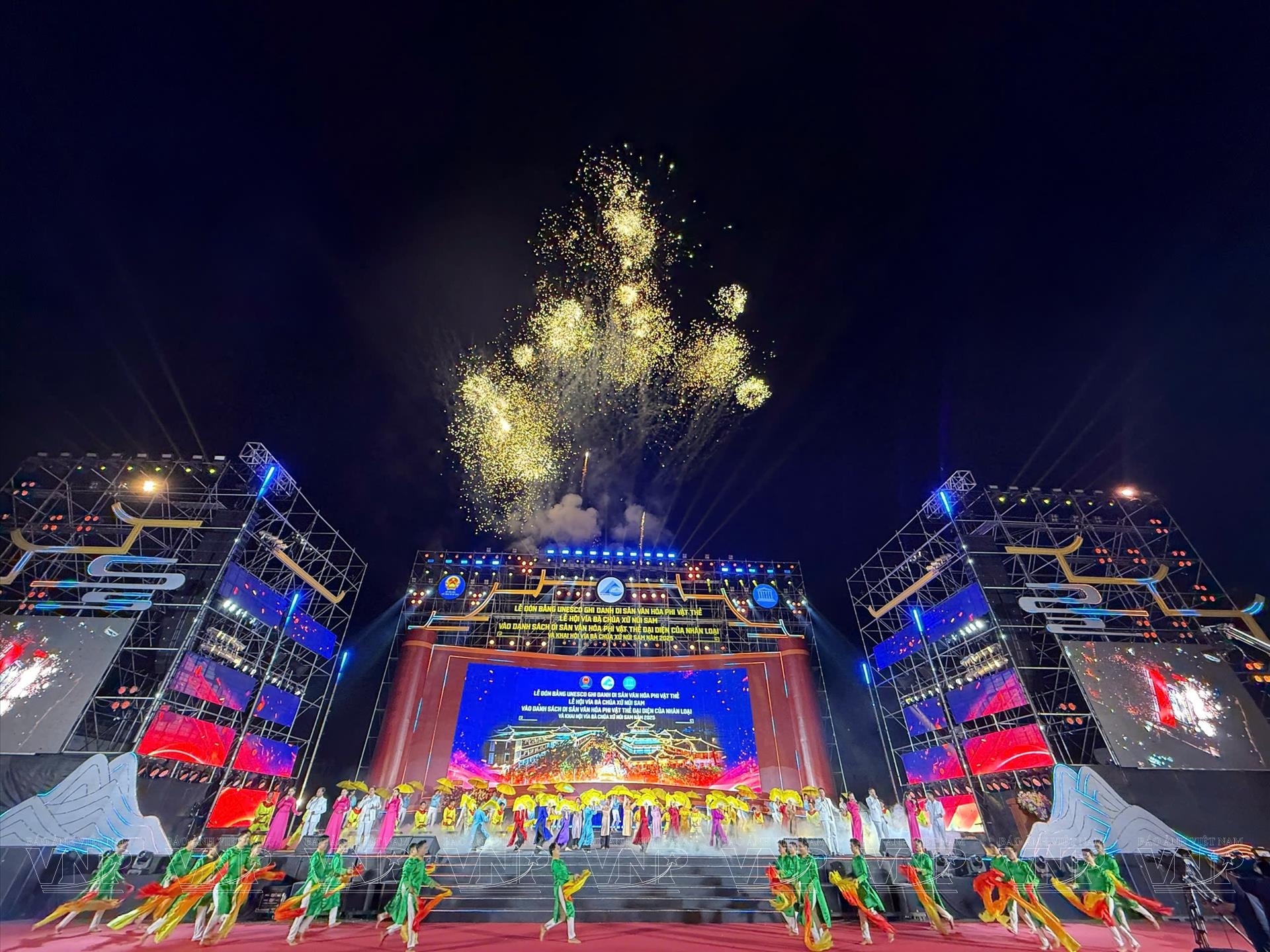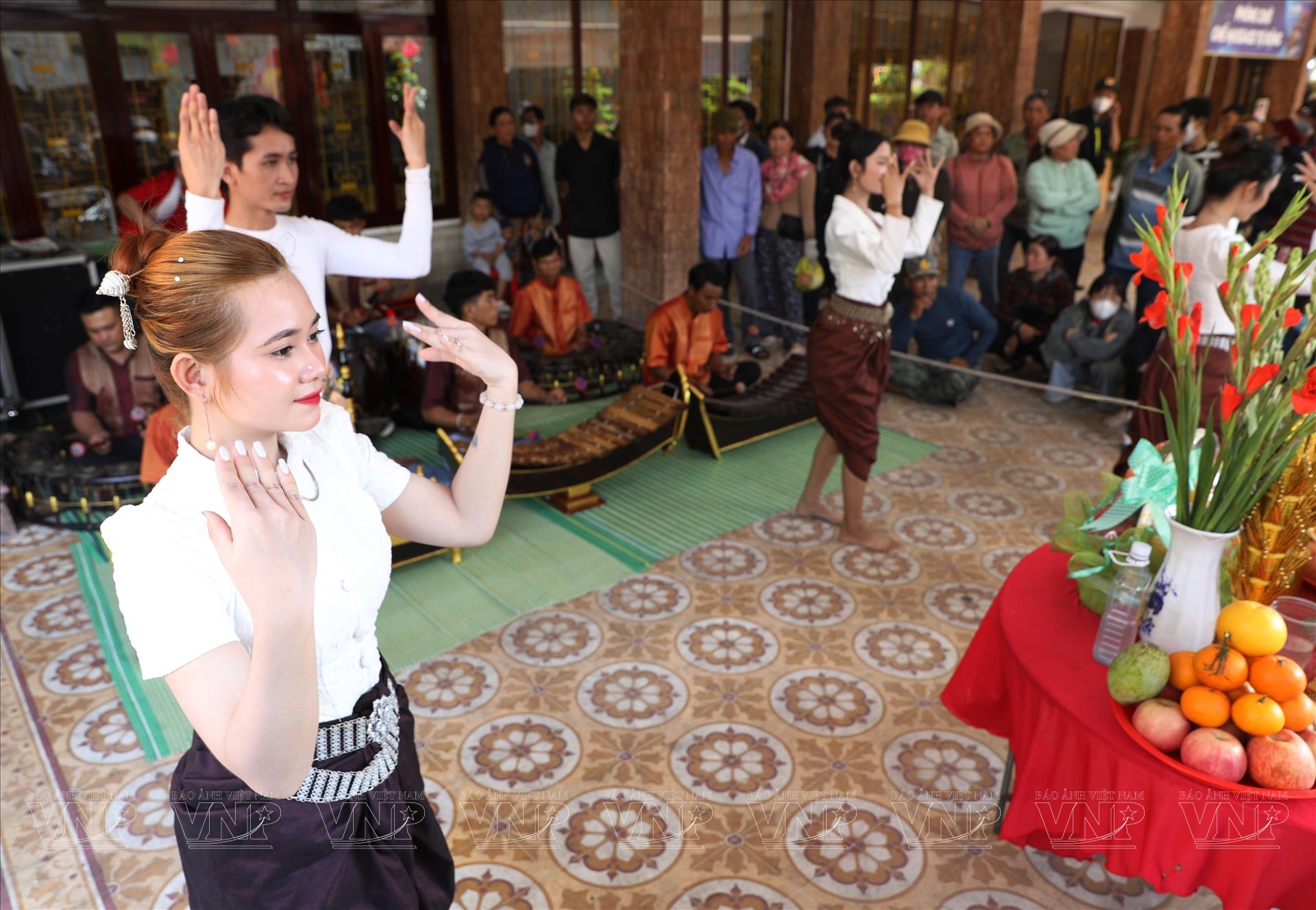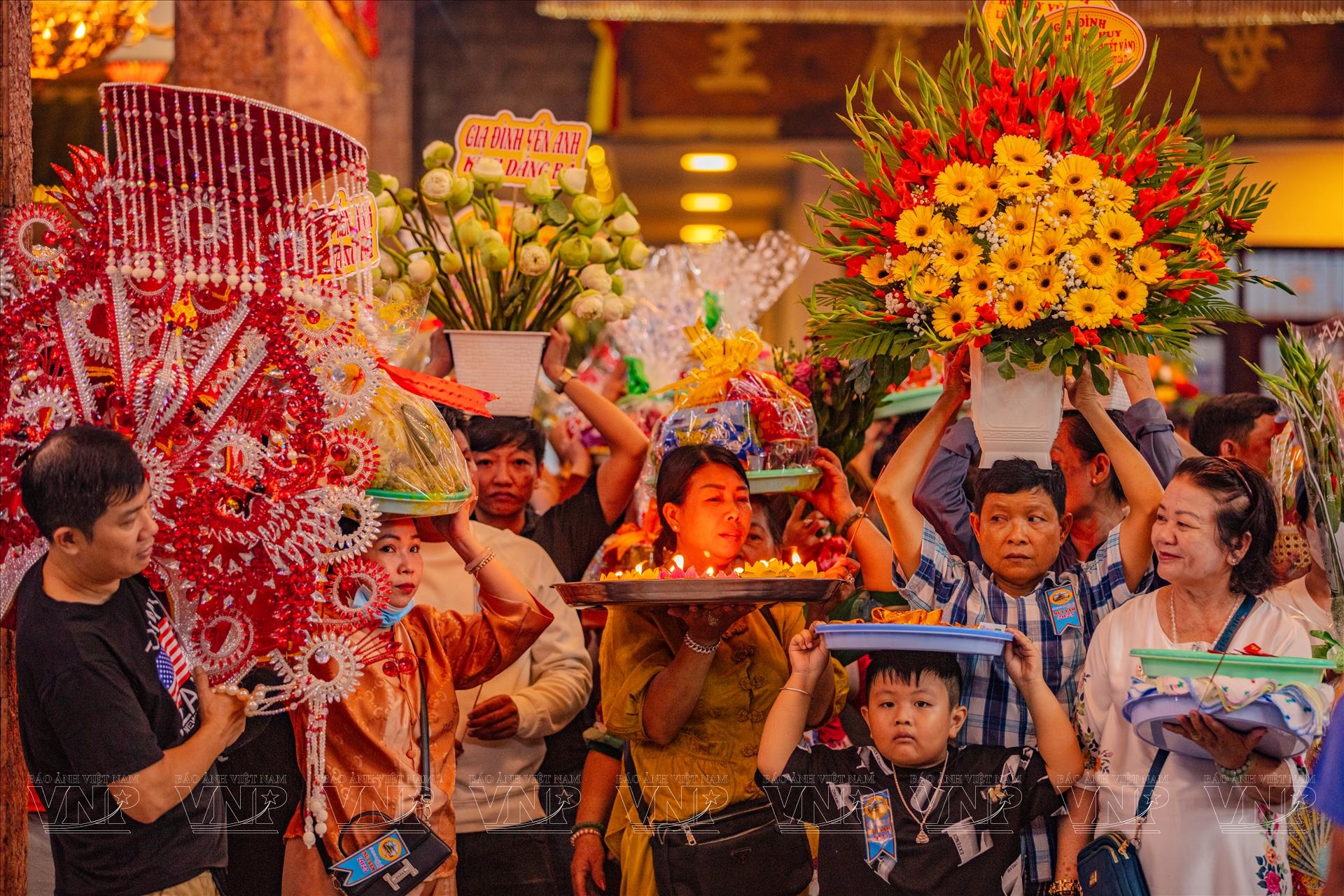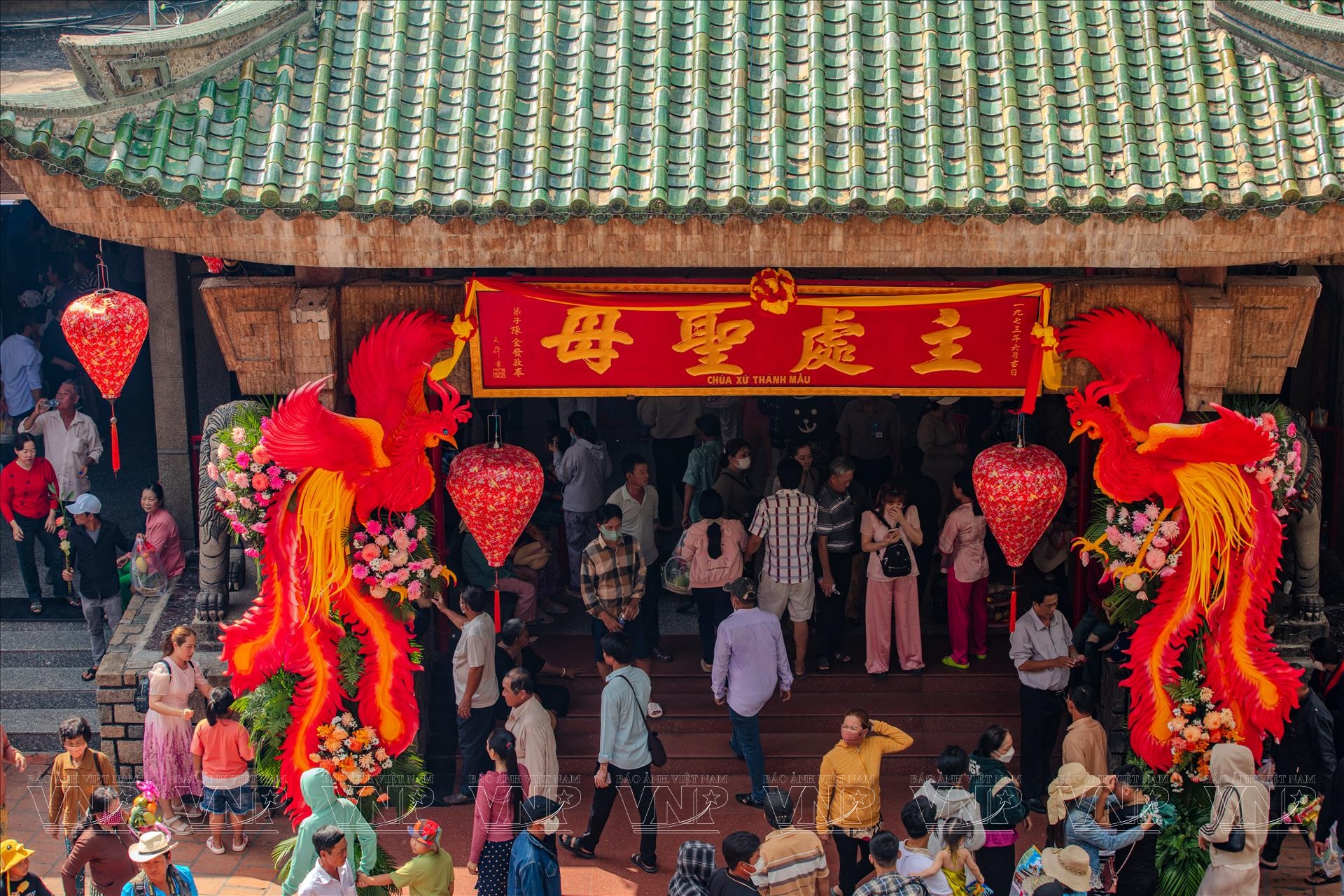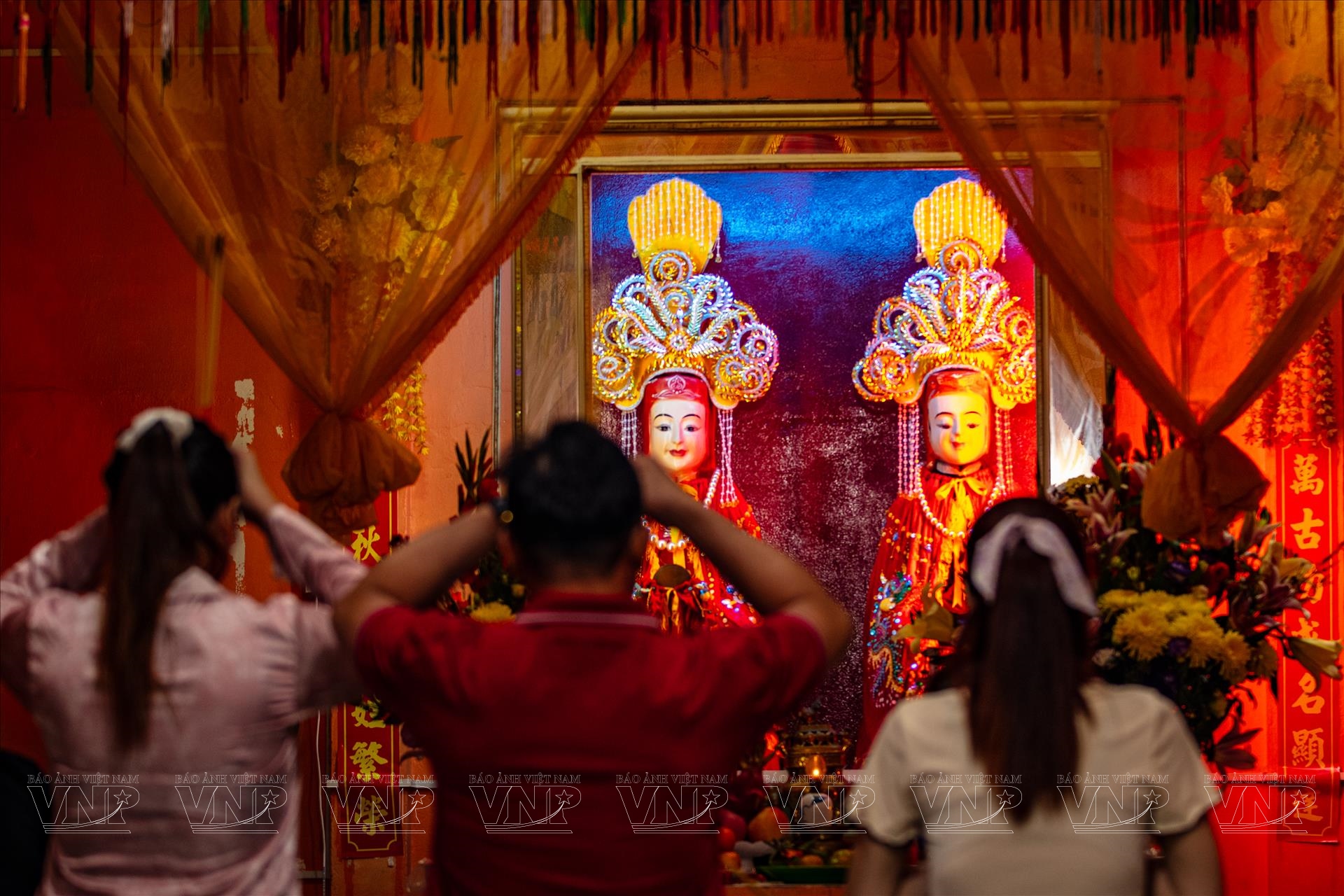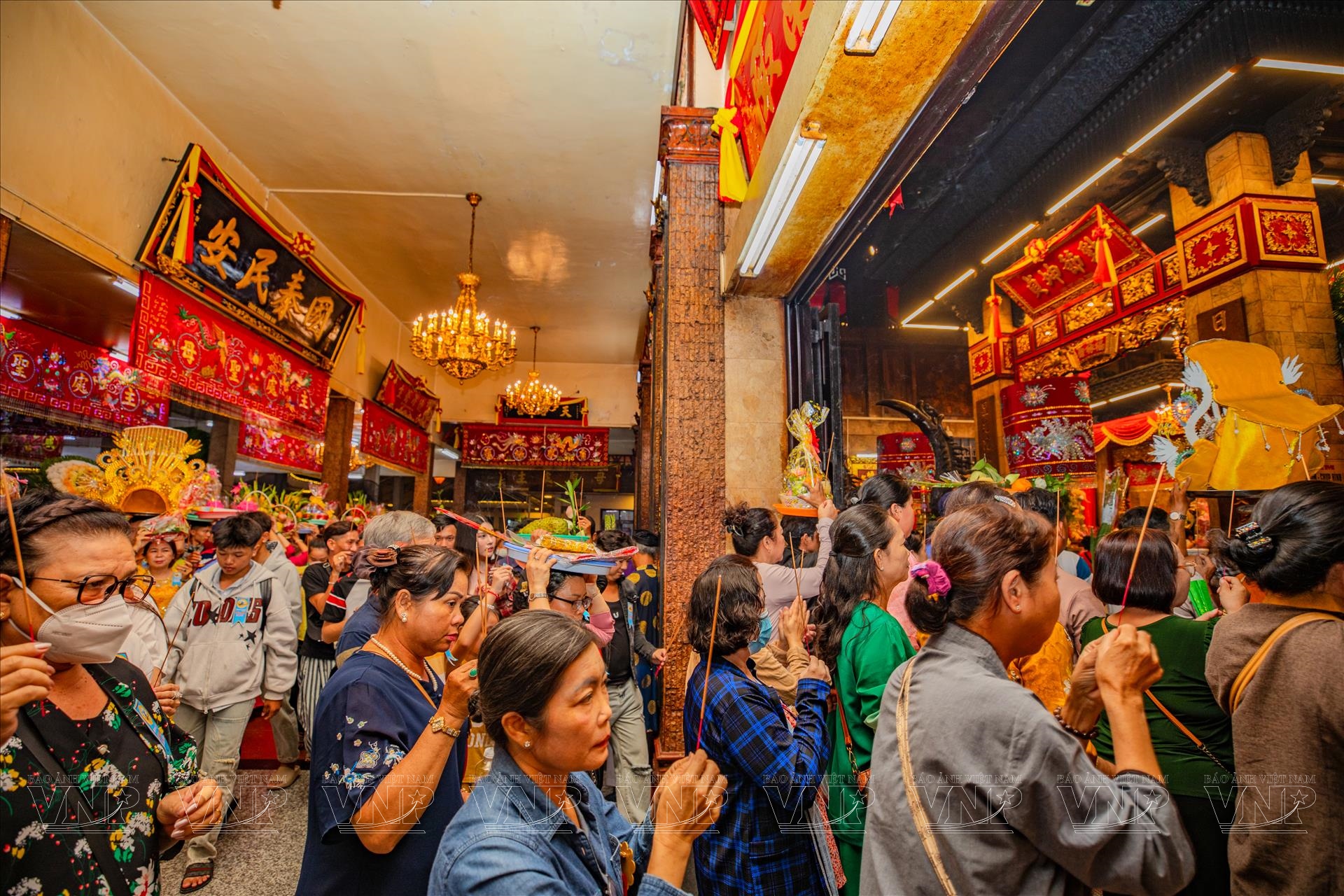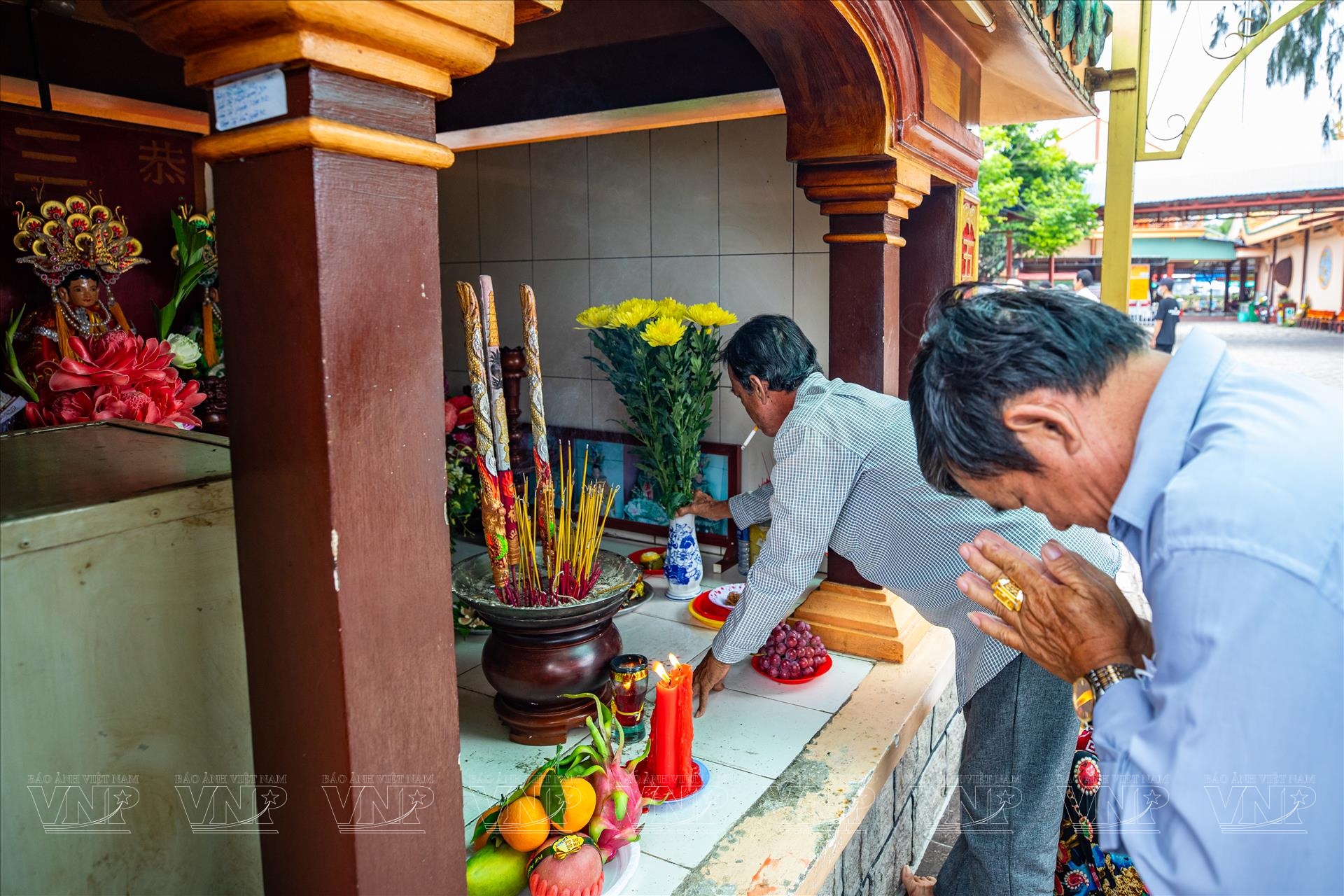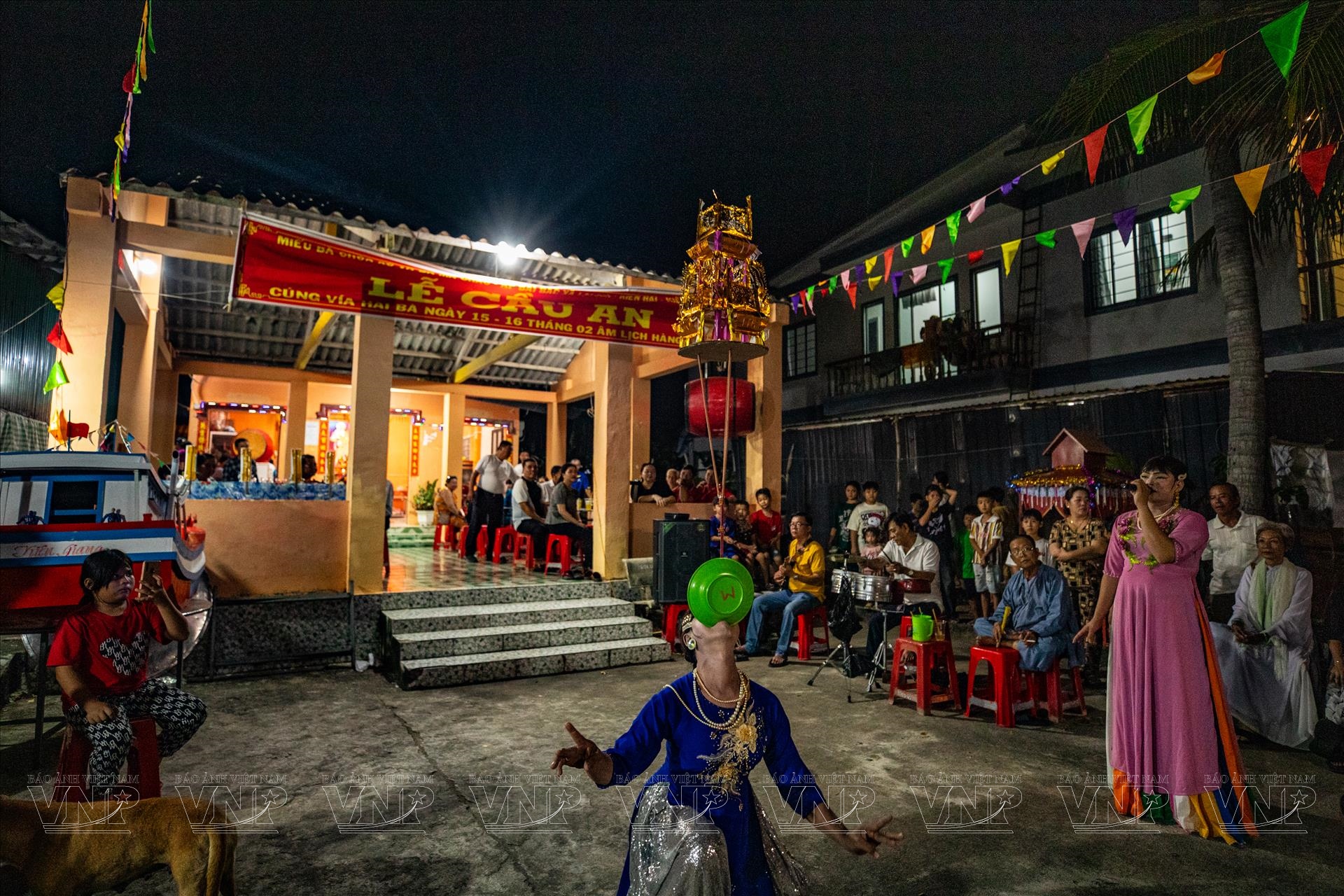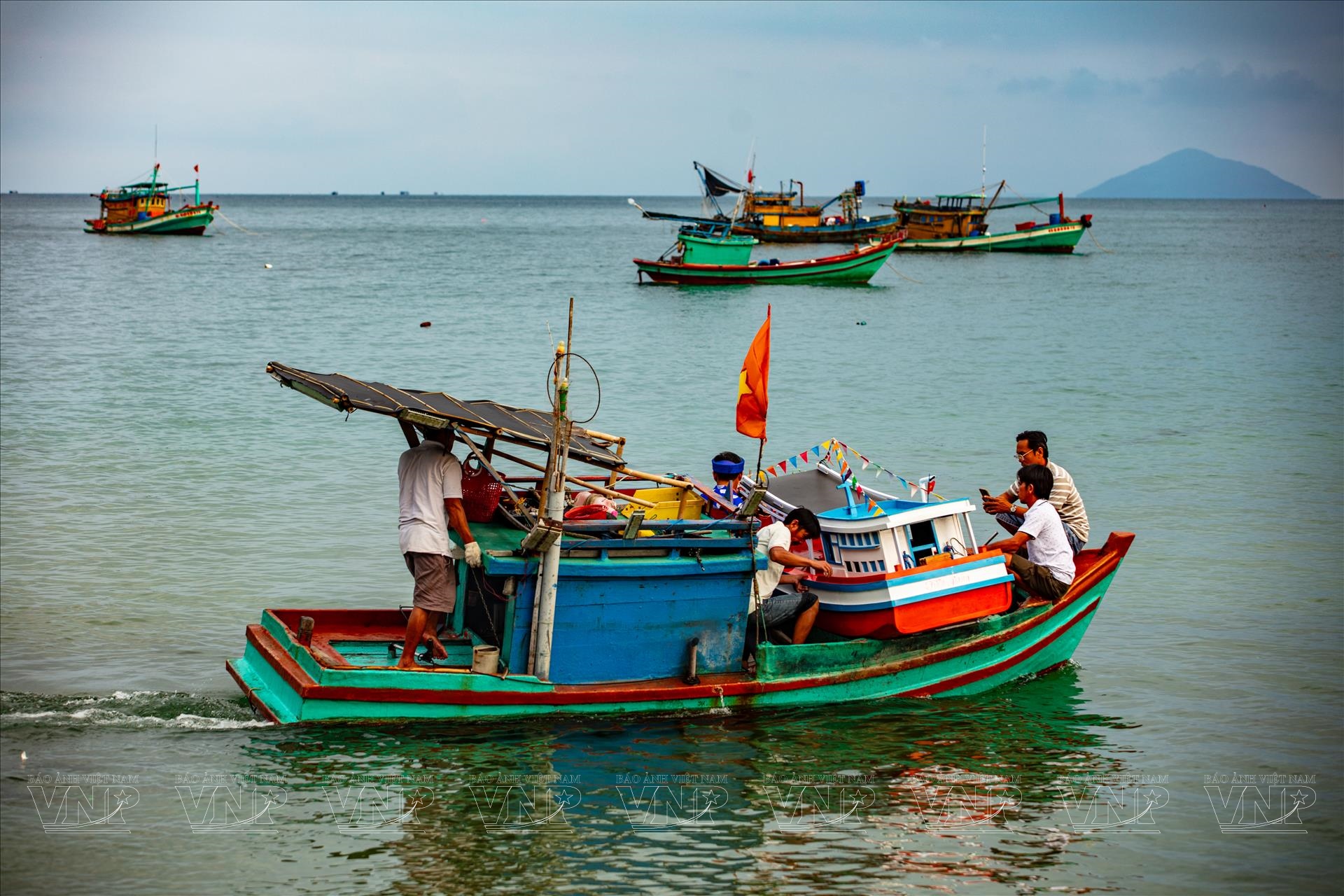The Ba Chua Xu Goddess Festival on Sam Mountain
The Ba Chua Xu (The Lady of the Realm) Goddess Festival on Sam Mountain was officially recognized by UNESCO as an Intangible Cultural Heritage of Humanity in late 2024. Every year in late April on the lunar calendar, people from An Giang Province and the broader Mekong Delta, along with visitors from across Vietnam make their way to Sam Mountain in Vinh Te Ward, An Giang, to take part in this vibrant folk celebration.
The Ba Chua Xu Goddess Festival on Sam Mountain in Vinh Te Ward, An Giang Province, is a long-standing cultural tradition that reflects the distinct identity of the Mekong Delta’s river communities. According to the Management Board of the Sam Mountain Temple and Mausoleum, the statue of Ba Chua Xu has stood on Sam Mountain for nearly 200 years.
One day, a group of unruly bandits known for stirring up trouble along the border climbed Sam Mountain and came across the statue. They immediately had bad intentions. As they tried to carry the statue down the mountain together, they found it unbelievably heavy and could not move it far.
Frustrated, one of the bandits struck the statue and broke its left arm. He was instantly punished by the Goddess. From then on, the Goddess began appearing in local people's dreams identifying herself as Ba Chua Xu or Chua Xu Thanh Mau (the Lady of the Realm). She instructed the local people to build a temple in her honor, promising blessings of good weather, plentiful harvests, protection from danger, and relief from illness. Awed by her divine presence, the people decided to move the statue to a place where they could worship her properly.
In the years that followed, more vivid and mysterious legends began to circulate among the people, each reinforcing the sacred, miraculous power of the local deity - power that seemed to transcend all understanding.
The Ba Chua Xu Goddess Festival blends solemn rituals with lively community celebrations. One of the most important rituals is a symbolic reenactment of the moment villagers first invited Ba Chua Xu’s statue to be worshipped in the lowlands. The ceremonial procession is both spiritual and festive, marked by the sounds of drums and gongs, with lion, unicorn, and dragon dancers leading the way.
Another key ritual is the Moc Duc, or Bathing Ceremony, held early in the morning after the procession. During this sacred moment, the statue is carefully washed with special water and dressed in clean robes and headwear. The ceremony is usually performed in private to protect its spiritual purity. It is believed to cleanse the statue and bring blessings of renewal and protection to the people.
Beyond its sacred rituals, the festival offers a lively and colorful celebration, featuring sports competitions, traditional folk games, and performances of ethnic music and dance. These activities showcase the rich cultural heritage and deep sense of unity among An Giang’s four ethnic groups, the Kinh, Cham, Hoa, and Khmer.
According to Thai Cong No, a member of the Management Board of the Sam Mountain Temple and Mausoleum, Ba Chua Xu is revered by the people of Chau Doc as a sacred and protective mother goddess who is always watching over them and offering support. Participating in the festival is not only an expression of faith, but also a way for people to pray for health, peace, and prosperity. It serves as a powerful reminder of shared values, strengthening community bonds and promoting solidarity and mutual support in the face of life’s challenges.
At the UNESCO World Heritage Recognition Ceremony held in March 2025, Deputy Prime Minister Mai Van Chinh emphasized that this prestigious title is not only a source of pride for the Party Committee, authorities, and people of An Giang Province, but also for the entire southern region and the nation of Vietnam as a whole. He noted that for more than 200 years, the worship of Ba Chua Xu has served as a vital spiritual anchor for millions of people, not only in the South but also for the country. The festival reflects deep reverence for Ba Chua Xu, revered as the Mother of the Region, and stands as a powerful symbol of Vietnamese Mother Goddess worship. It plays a meaningful role in preserving and promoting the nation's cultural identity.
The worship of Ba Chua Xu extends far beyond Sam Mountain. Throughout Southwestern Vietnam, most villages have temples or shrines dedicated to her. She is often honored alongside the Ba Ngu Hanh (Five elements) and the Earth God in communal houses and pagodas. Deeply respected as the “Mother” of the land, she is believed to bring blessings, protection, and peace.
Located in Thoi Son Ward, Ba Chua Xu Bau Muop Temple is known for its spiritual power and serene beauty. It is considered just as sacred as the main temple on Sam Mountain. According to local legend, Ba Chua Xu Bau Muop was one of the 12 disciples of the Buddha Tay An. A quiet and mysterious figure during her lifetime, she became known only after her death, when people believed she began to appear in spiritual form to help those in need. Grateful villagers later rebuilt the temple in her honor.
Not only local residents but also visitors from faraway cities come to Ba Chua Xu Bau Muop Temple to pray for peace and good fortune. After receiving her blessings and overcoming hardships, many return to show their gratitude by contributing funds and support to help rebuild and maintain the temple, making it as spacious and well-preserved as it is today.
Another sacred site is the Ba Chua Xu Ma Chau Temple, located at Bai Nha A on Hon Son Island in Kien Hai special administrative region, An Giang Province. The temple faces the sea, as if the Goddess is always watching over and protecting fishermen every time they set sail. In front stands a tall, graceful gate with a roof. The main hall is brightly decorated with respectful, detailed designs, reflecting the deep faith of the island’s people. Locals believe Ba Chua Xu is both a guardian of the land and a sea goddess who protects fishermen from storms, rough waters, and danger at sea.
The annual temple festival is held from the 8th to the 10th day of the 9th lunar month. During this time, the temple’s management board invites a performing troupe from Ho Chi Minh City to entertain the island community. People from the mainland also bring goods and local products, adding to the lively and festive atmosphere.
The event attracts not only local residents but also many visitors from other provinces, who come to take part in the celebration and pray for peace and blessings for their families. Each year, Hon Son welcomes thousands of people during the festival. Ba Chua Xu Ma Chau Temple is more than just a sacred place for local residents, it has also become a popular spiritual destination, drawing visitors from both nearby and faraway places.
Ba Chua Xu holds an important place in the spiritual life of people across the Southwest and Southern Vietnam. Her worship encourages people to live morally, turning away from wrongdoing and choosing to do good. It also inspires compassion, supports acts of community service, and helps people stay strong in their faith during life’s challenges./.
Story: Thong Hai Photos: Nguyen Luan, Thong Hai/VNP & Files Translated by Nguyen Tuoi
